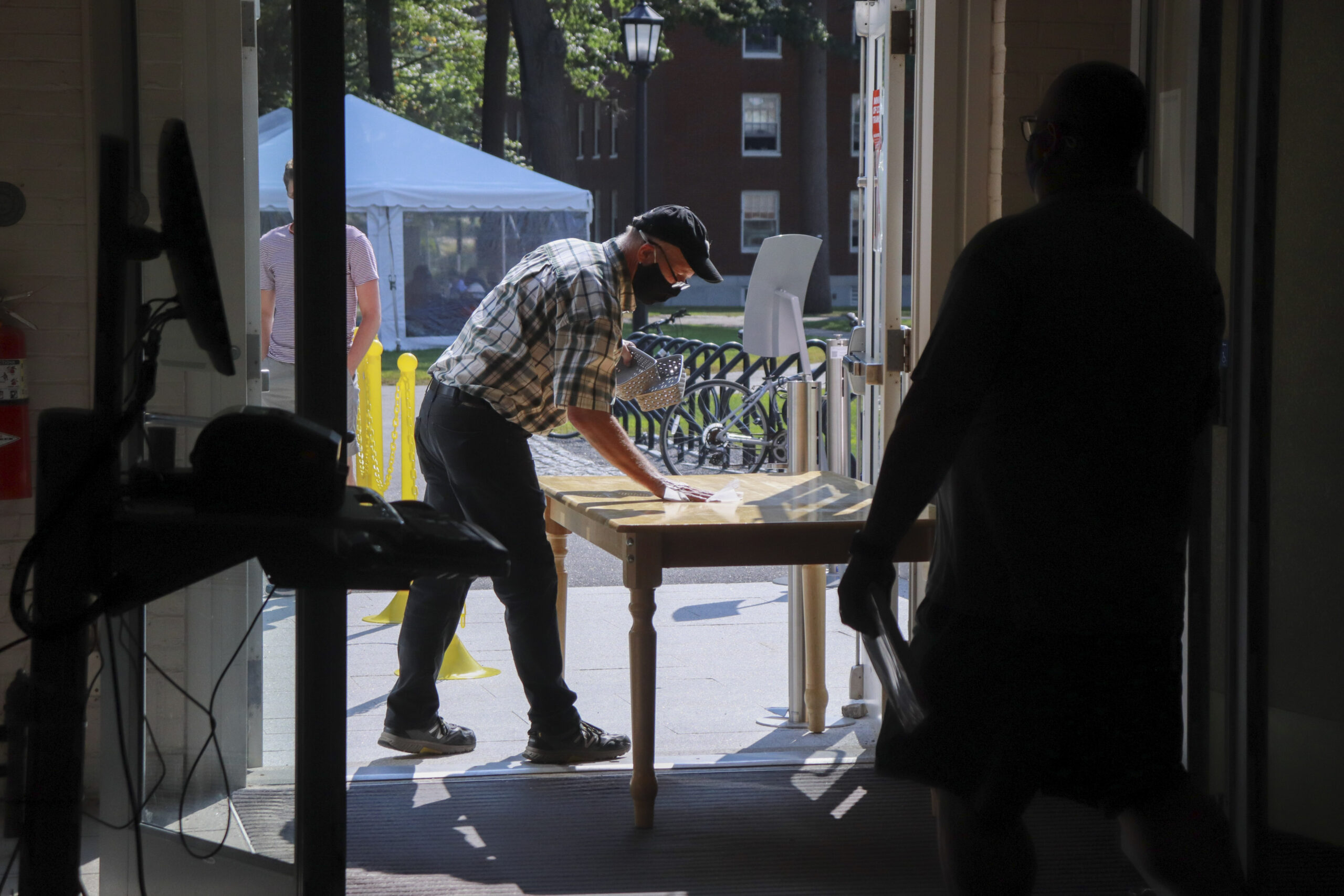Working through the pandemic: College staff share experiences on campus
September 18, 2020
 Caleb Adams-Hull
Caleb Adams-HullOver the past few months, the College has implemented various measures to safely bring some students back to campus during the COVID-19 pandemic. From altering dining halls to cleaning common areas more often, many departments on campus have been hard at work.
Dining and housekeeping are two departments meant to help sustain students’ quality of life on campus. These sectors have had to adjust to uphold new health standards in the midst of a pandemic.
Housekeeping is in charge of upkeep and sanitation in most residential areas on campus, and during the pandemic, sanitation has taken on an even more important role. Even though everyone on campus shares the responsibility of maintaining a safe and healthy environment, housekeeping puts extra attention and effort into the cleaning of common spaces.
“The fundamental role of housekeeping has not changed other than a concentrated effort to disinfect high-traffic areas on a more frequent basis and paying special attention to high-touch surfaces and bathrooms,” wrote Manager of Housekeeping and Environmental Services Brandie Hurley in an email to the Orient.
Various housekeepers echoed this sentiment.
“[The work] is not as busy as a typical school year, but instead of us sharing one building, we have the whole building to do ourselves. Then we have to go back and disinfect all the touchpoints all throughout the day—and now we have the tents this year also, so we have a lot of housekeepers out there, wiping down all the tents all throughout the day,” one housekeeper, who asked to remain anonymous, said.
Even though the housekeeping staff is down seven people, they are finding ways to make up for that loss.
“It’s very physical work; it’s extremely physical. So it’s not an easy job, but I enjoy it. There’s less work right now because there’s still a lot of buildings that are closed. So we have the extras that would come and do other things … like the tents and touchpoints,” added another housekeeper who also wished to remain anonymous.
Many housekeepers were appreciative that the College continued to pay them over the months they weren’t working.
“Many of the people I knew filed for unemployment because of the pandemic, but we never had to since they kept us on,” said another housekeeper.
On the other hand, some dining staff have worked throughout the pandemic to help the students on campus.
Amanda Bennett, a production assistant who works primarily in the salad department, said she has not stopped working since the onset of the pandemic.
“There weren’t really big changes from last year except we have less options and have to be more aware of our safety—like for us to work six feet away from each other, and keep our mask[s] on,” Bennett said in a Zoom Interview with the Orient.
Dining typically functions as a self-service area, where students fill their plates and sit at a table to enjoy their meal. But now, that model isn’t possible.
“We made up different scenarios, depending on what fall was going to look like. We didn’t know for a while. So we came up with different plans,” said Tricia Gipson, assistant director of business services, in a Zoom interview with the Orient.
Both Thorne and Moulton dining halls are currently open, allowing students to grab take-out meals while observing social distancing and sanitization practices.
“This current method is working better than we thought it would; we thought the wait time was going to be much longer, but it isn’t,” said Gipson.
The dining staff is working in cohorts to limit contact with others. Before the pandemic, an employee could work in both dining halls to cover for a coworker, but now each staff member is restricted to the dining hall to which they are assigned.
“So it really just boils down to trusting your coworkers. We were in groups, so I have faith that everybody is being safe outside of work,” said Bennett.

Comments
Before submitting a comment, please review our comment policy. Some key points from the policy: